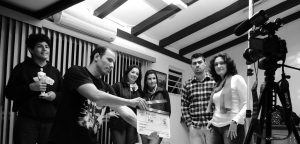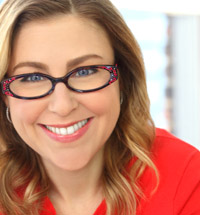An Interview with John Keon, NY Headshot Photographer by Tony Nation
Before you go digging into New York casting calls, you’ll want to make sure you have a great headshot on hand that accurately reflects what you want to project to casting directors. Headshot photographer John Keon shares what makes a successful headshot.
How did you get started as a photographer?
I have appreciated beautiful photography for most of my life, but I didn’t buy my first DSLR camera until 5 years ago. At first, I was using it mostly to take photographs casually – simply to capture great moments in my life. When I started getting compliments on those photos, I realized I could pursue a career as a photographer. About a year and a half ago, I started taking headshots of my friends and doing photo shoots for free to build my portfolio. These sessions provided me with great on-the-job training about the relationship between the model and the photographer, as well as ways I can build on my talent. Even today I continue to learn from my photo shoots, which is one of the best parts about my job. It doesn’t hurt that my friends all love having their photos taken – I get lots of practice!
What should an actor look for in a headshot photographer?
Obviously I think you need to like the style of the photographer first. You can usually tell right away by looking at someone’s portfolio if they are someone you want to work with. But I think there is a more important quality an actor should look for: chemistry between the actor and photographer. If you and the photographer don’t get along, the camera will pick up on it, no matter how good the actor is at acting. So look for someone who makes you comfortable, and doesn’t intimidate you.
How should an actor prepare for their shoot day?
First, get some rest! You’d be surprised what a difference some beauty rest makes. Next, put a little time into thinking about your ideal shots. A headshot photographer will have ideas about what will look good – that’s part of our job – but ultimately they are going to be your headshots, representing you. Look at the photographer’s portfolio. Are there shots you particularly liked? (Hopefully, since you’re shooting with them!) Mention those to the photographer. Do your research.
(The actor needs to think about what they want to get out of the shoot. A photographer will have their own ideas about what will look amazing, but at the end of the day you need to make sure that it will work for your final headshot. So do some research and look around at other people’s photos.)
What types of clothing are best for a photo shoot?
Nothing that wrinkles easily, nothing sheer, nothing baggy, nothing with logos. Basically your clothes should be fitted and comfortable. I do like to see colors in a photo, and maybe some subtle prints, but that is a personal preference. If you bring something with a lot of patterns it will most likely draw attention away from your face, and that is usually not the goal with a headshot.
So consider your wardrobe carefully, but don’t overthink it. Bring a couple of outfits with you so you don’t regret wearing that wrinkled shirt that looked so good on you the night before! Also, the photo should convey your personality as well as the role you want to play. You don’t want to look like a high school kid if you are auditioning for a role in something like Chicago – or vice versa!
Do women need a hair/make-up stylist on the shoot?
Each woman is different. I personally do not require you to have make-up and hair professionally done. You should feel comfortable with being able to at least apply a simple layer of make-up that looks natural. One of my clients once used the make-up artists at Sephora to get her face done. It cost her about as much as she’d have paid for a lip gloss, and she looked awesome. However, there is something to be said about having someone on location with you, if nothing else than peace of mind.
What do you prefer-studio or natural lighting?
I prefer natural lighting because it makes each photo shoot unique. It also makes the location much more flexible.
What are your thoughts on retouching?
Of course there will always be some retouching done – but there is a line between making you look like the best version of yourself, and making you look like someone else. It is similar to plastic surgery (which I’m not a huge advocate of): you should really know when to say enough is enough. It can be so easy to get a little carried away and remove every single mole or freckle, take out every single wrinkle, and bleach the teeth whiter than snow. Your photo, however, should look like you! And I assume it is safe to say that you are not an upper east side cougar. I like a photo to look natural.
John Keon started his photography business nearly two years ago, although he has had many more years to develop a passion and love for photography. The majority of his skill has been self taught, however he’s very fortunate to be surrounded by inspiring and talented people which he’s learned so much from. This was one of his motivations of moving to New York four years ago from Washington State.
If you have more questions, feel free to contact him via his website at: johnkeonphotography.com





